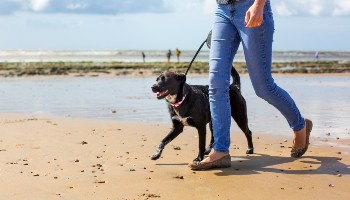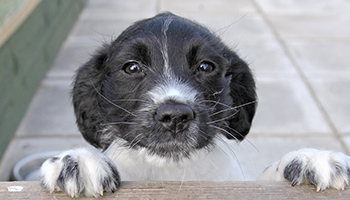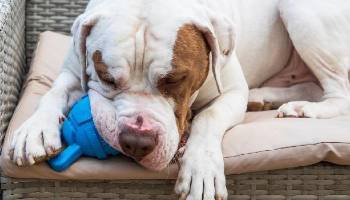Choosing dog boarding kennels and daycare
It's important to know what to look for when choosing a boarding kennel or doggy daycare for your dog so you can ensure they receive the best care possible
Since the law changed in October 2018, licensed business in England involving animals – including those running a licensed dog boarding kennel, home boarding business or doggy daycare (including people operating as part of a franchise) – must meet standards for:
- Sufficiently trained staff
- Environment and housing
- Suitable diet
- Monitoring behaviour
- Protection from suffering
- Health and wellbeing
- Emergency procedures
These regulations focus on meeting the welfare needs of dogs and ensuring they're given the enrichment and company they need while they're boarding.
Choosing a dog boarding kennel
There are a number of things you should check are in place for your dog when using any boarding service. As a guideline, your dog should always have the following:
- A suitable, safe environment.
- Their own kennel unit, unless you've given permission for your dog to share with another dog from your household.
- Access to their own sleeping area at all times.
- Enough space in the kennel to allow all dogs to sit and stand at full height, lie down fully, stretch out, wag their tail, walk and turn around.
- At least one walk a day outside their kennel.
- Toys to keep them occupied.
- Their behaviour monitored by staff.
-
A record of their stay.
Boarders who aspire to higher standards will offer two walks per day, each lasting for at least 20 minutes.
Choosing a dog boarding kennel
There are a number of things you should check are in place for your dog when using any boarding service. As a guideline, your dog should always have the following:
- A suitable, safe environment.
- Their own kennel unit, unless you've given permission for your dog to share with another dog from your household.
- Access to their own sleeping area at all times.
- Enough space in the kennel to allow all dogs to sit and stand at full height, lie down fully, stretch out, wag their tail, walk and turn around.
- At least one walk a day outside their kennel.
- Toys to keep them occupied.
- Their behaviour monitored by staff.
-
A record of their stay.
Boarders who aspire to higher standards will offer two walks per day, each lasting for at least 20 minutes.
Choosing dog home boarding
Licensed home boarding businesses must provide a suitable environment, monitor your dog's behaviour and keep comprehensive records.
Your dog must be:
- Accommodated within the home and have their own room where they can be kept separate from other dogs if needed. Rooms don't include conservatories, garages, cellars, outside buildings/sheds, balconies or outside structures.
- Exercised at least once a day and as appropriate for their age and health.
As with boarding kennels, home boarders aspiring to higher standards will provide your dog with two walks per day and for a minimum of 20 minutes.
Choosing a doggy daycare
All dog daycare businesses, including people operating as part of a franchise, are now required to monitor all dog behaviour, social interactions and the environment in which they're cared for.
For a dog daycare to be fully licensed, in their care, your dog must be:
- Assessed before they can go to the daycare provider to make sure they're not scared, anxious or stressed around other dogs and people.
- Able to access a toilet area where they can go to the toilet when they want to.
-
Able to access a safe space where they can avoid seeing people or other dogs if they choose to.
Daycare providers aspiring to higher standards will also document the interactions your dog has with people throughout the day.
As always, if you feel that these conditions aren't being met, we urge you to walk away (taking your dog with you) and file a report to the kennel's local council. You can visit CGSG to find out more about how your dog should be looked after while in dog daycare.



